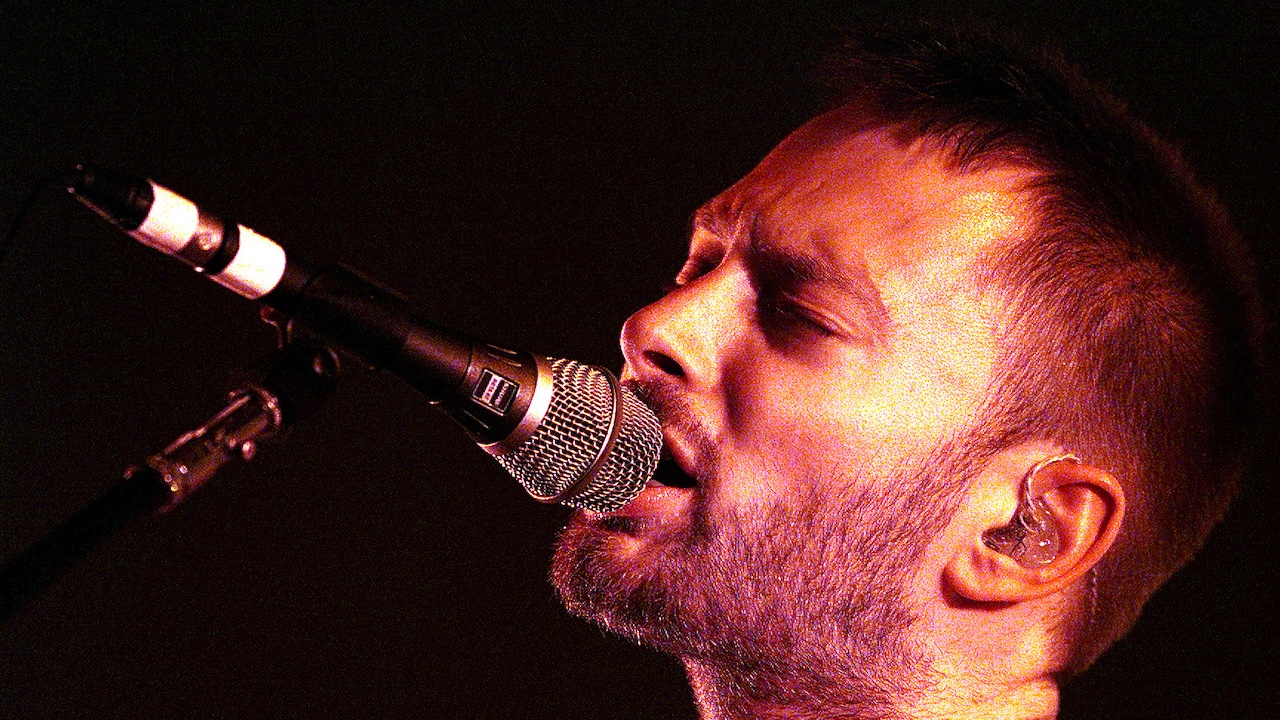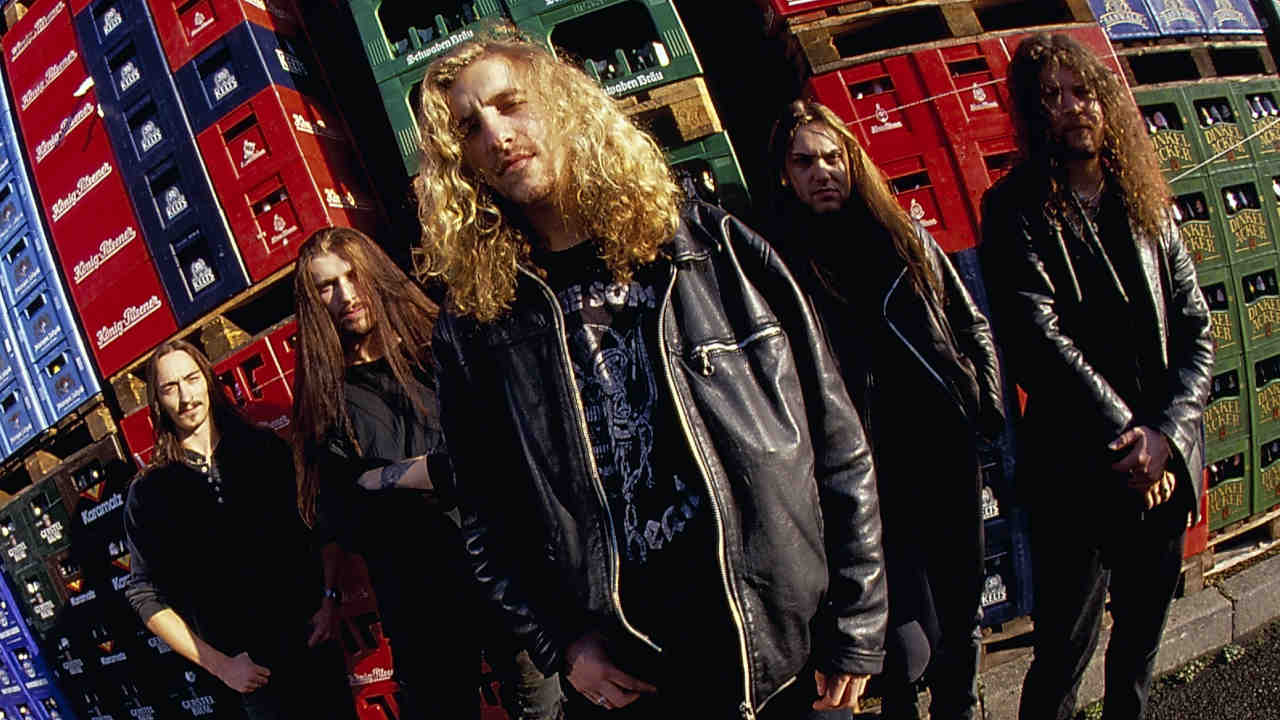From problem child to golden child: The story behind every song on Radiohead’s Kid A
A deep dive into the Oxford quintet's game-changing fourth album as it turns 25

Select the newsletters you’d like to receive. Then, add your email to sign up.
You are now subscribed
Your newsletter sign-up was successful
Want to add more newsletters?

Every Friday
Louder
Louder’s weekly newsletter is jam-packed with the team’s personal highlights from the last seven days, including features, breaking news, reviews and tons of juicy exclusives from the world of alternative music.

Every Friday
Classic Rock
The Classic Rock newsletter is an essential read for the discerning rock fan. Every week we bring you the news, reviews and the very best features and interviews from our extensive archive. Written by rock fans for rock fans.

Every Friday
Metal Hammer
For the last four decades Metal Hammer has been the world’s greatest metal magazine. Created by metalheads for metalheads, ‘Hammer takes you behind the scenes, closer to the action, and nearer to the bands that you love the most.

Every Friday
Prog
The Prog newsletter brings you the very best of Prog Magazine and our website, every Friday. We'll deliver you the very latest news from the Prog universe, informative features and archive material from Prog’s impressive vault.
Discussing the making of Radiohead’s fourth record Kid A in an interview with Mojo magazine in 2001, guitarist Ed O’Brien said of its gruelling creation, “Phil, Colin and I went through some major dilemmas at various stages. How could we contribute to this new music? We all wondered if it wasn’t better to just walk away.”
It was the year 2000. Radiohead had established themselves as the most inventive, forward-thinking guitar band of the 90s, a band who’d followed one masterpiece (1995’s The Bends) with another masterpiece (1997’s OK Computer), albums that marched rock music into a whole new realm. Everyone wanted to know what they were going to do next.
That included O’Brien and his two bandmates – drummer Phil Selway and bassist Colin Greenwood – who were understandably confused when frontman Thom Yorke, ably assisted by the band’s virtuoso guitarist and crack multi-instrumentalist Jonny Greenwood, opted not to just throw the baby out with the bathwater, but get rid of the bath too.
The album that would become Kid A was a line in the sand and then some. Everything that everyone thought was great about Radiohead up to that point was eschewed during its creation: no epic, anguished choruses, no explosive, Pixies-in-space guitar solos, no soaring vocals and no pretty ballads.
The huge success of OK Computer had cast a huge shadow over Thom Yorke and what he wanted his band to be. “I’d completely had it with melody,” he said. “All melodies to me were pure embarrassment.”
All of which makes Kid A sound terrible. But Kid A is not terrible, it’s brilliant. Radiohead took an adventurous, and actually pretty bloody stupid, left-turn away from whatever it was that was expected of them and emerged with a record that reshaped what a rock band could be. To put it lightly, there really were not too many (or any) mainstream rock bands whose latest record took in jazz-tinged skronk-rock, heady Krautrock grooves, ambient minimalism, techno menace and cut-up electronica in the year 2000. This was a new sound for the new millennium.
As happens to trailblazing records that sound strange and weird the first time they arrive, Kid A sounds pretty normal now, an album that opened up a different pathway not just for Radiohead but for a wave of artists who followed and were inspired by the band's dazzlingly fluid approach, The 1975, The xx, Bon Iver, Arcade Fire, IDLES, Steven Wilson, Grizzly Bear, Everything Everything, Foals, Fontaines D.C. are amongst them.
The latest news, features and interviews direct to your inbox, from the global home of alternative music.
As Ed O’Brien recounted, Kid A was anything but the easy option, but it was the right one. It’s now considered a game-changing masterpiece, and Radiohead were not the same band in its wake. It turned 25 this week and you could say that everything have done since, both with Radiohead and in their numerous side-projects, solo vehicles, film score projects and more, can be traced back to a blueprint laid down in these ten songs. Here’s the story of Kid A, the album that went from problem child to golden child, song by song...

Everything In Its Right Place
Compared to the barbed guitar crunch that opened OK Computer, the synthesised chord pattern that began Kid A was notice that things were changing round here. The live version of Everything... spiralled into a euphoric outro built out of sampled vocals and guitar effects but its recorded counterpart is a restrained and compact anti-epic. The song was key to Kid A coming together. Written on piano the week Yorke had purchased one after becoming sick of the guitar, there were two fruitless attempts at recording it until they got this one down. Offering up a way forward after a series of frustrating recording sessions, it was a key breakthrough.
Kid A
The title track was where Yorke & co. really hammered the gauntlet down – basically, if anyone was listening to Kid A because their favourite Radiohead song was Creep, Just or High And Dry, here’s where they might have got off. Named after the sequenced part Yorke had saved on his Roland MC-505, the song's swirling meld of heavily treated vocals (a result of Jonny Greenwood filtering Yorke’s vocals through an Ondes Martenot), toy-box keyboards, skittish rhythms and airy synths possessed a brilliance that slowly revealed itself over repeated listens. Twenty-five years later, though, it’s still not for fans of Creep.
The National Anthem
Kid A's brave new world didn’t strictly mean a brave new world: the snarling, circular bass riff that powers the first song approaching a “rock” tune on Kid A dated right back to the band’s earliest days. Yorke got down a four-track demo, complete with vocals, during the sessions for OK Computer but The National Anthem (also called Everyone at one point) found its true form here, it’s rolling rhythms slowed down a tad so that it resembled a swaggering Can. Where there might have once been some guitar pedal-assisted chaos in the middle-eight, now there was a horn section blasting through (Yorke told them to play like they were angry and stuck in a traffic jam). It became a regular, attention-grabbing opener when the band hit the road.
How To Disappear Completely
Written on the road as Thom Yorke struggled to handle OK Computer’s success, the main hook in the haunting, acoustic sway of How To Disappear Completely – “I’m not here, this isn’t happening” – was taken from advice given to Yorke from R.E.M.’s Michael Stipe about how to deal with fame. It’s one of the rare Kid A songs to be aired live before they recorded it, with a version clocking up at over seven minutes played on a few occasions in 1998.
Treefingers
An eerie interlude composed out of atmospheric guitar loops, the soporific drones of Treefingers might well be one of the weirdest things Radiohead have ever done, certainly one of the most out-there pieces of music to feature on a Number One album. Its creation sums up where Radiohead were at when it came to traditional songwriting at that point: Yorke got O’Brien to play guitar for then minutes, put it into his laptop, turned it into something else entirely, and this is what came out. Comically, the band released an extended version in 2020, possibly the toughest game of Spot The Difference ever.
Optimistic
Thom Yorke later regretted the fact that Radiohead chose not to release any singles from Kid A, saying it meant radio stations got to control which songs to play from it instead – and Optimistic is invariably the one they went for. That’s probably because at the time it felt like the most reassuringly old Radiohead cut from the record, a tumbling, bluesy rock song that sounded like a murkier R.E.M.. At 25 years distance, it sounds nothing like anything Radiohead had done before, more rhythmic-based than song-led and never allowing itself to fully cut loose. Its chief lyric – “You can try the best you can/The best you can is good enough” – comes from words of encouragement offered to Yorke by the late Rachel Owen, his wife at the time, at a point when he was doubting everything the band were creating.
In Limbo
In Limbo had already been recorded in Paris and discarded when the band started making true headway on Kid A at their Oxford studio almost a year later. But, revisiting the tapes in a fresh frame of mind, they discovered that the song originally titled Lost At Sea was actually pretty good. The fact the band were banging their heads against a brick wall at the point they laid this version down adds to its sense of disorientating eeriness, the limbo-themed lyrics inspired by the fact Rachel Owen was doing a PhD on Dante’s Inferno at the time Yorke wrote them.
Idioteque
If any song sums up how Radiohead were seeking to reinvent their methodology but still emerge with music that could connect on a huge scale, it’s Idioteque. The making of this sparse, techno banger sounds like a particularly painful homework exercise: Jonny Greenwood built his own drum machine, crafted the song’s sharp beat, put a sample of a 1974 piece by the US composer Paul Lansky over the top and then handed the 30-minute-ish piece of music over to Yorke. The frontman took this experimentation and turned it into this scintillating, future-facing Terminator-rave anthem, a standout of Radiohead gigs for years to come.
Morning Bell
A sign of the sonic shapeshifting that was going on not just from song to song but take to take is the disparate versions of Morning Bell that feature on Kid A and its sister album Amnesiac. This one was released first but recorded after the Amnesiac version and it offsets an urgent, rat-a-tat drumbeat with warm keyboard chords slinking between minor and major and a serene if slightly haunted vocal from Yorke. Like Optimistic, it’s one of the few songs on the record where Radiohead sound like a traditional rock band playing in a room together, although Ed O’Brien hinted that his parts came together via lots of cut-and-pasting from producer Nigel Godrich.
Motion Picture Soundtrack
Diehard fans were already well acquainted with Kid A’s closer long before its definitive recorded version was released, with acoustic versions featuring on Bends-era bootlegs after Yorke had played it during a US radio session in 1996. The song’s genesis actually went all the way back to the beginning of the group, when they were called On A Friday. A plaintive piano version recorded for possible inclusion on OK Computer went unused (it was eventually released as part of the OKNOTOK 20th anniversary edition) and this slo-mo, pedal organ-powered version, envisioned as a sort of Disney-tinged take by Yorke, eventually won the day, sending the album off into a dreamy blur only broken by a secret track that sounds like an orchestra warming up in a black hole.
Niall Doherty is a writer and editor whose work can be found in Classic Rock, The Guardian, Music Week, FourFourTwo, Champions Journal, on Apple Music and more. Formerly the Deputy Editor of Q magazine, he co-runs the music Substack letter The New Cue with fellow former Q colleague Ted Kessler. He is also Reviews Editor at Record Collector. Over the years, he's interviewed some of the world's biggest stars, including Elton John, Coldplay, Radiohead, Liam and Noel Gallagher, Florence + The Machine, Arctic Monkeys, Muse, Pearl Jam, Depeche Mode, Robert Plant and more.
You must confirm your public display name before commenting
Please logout and then login again, you will then be prompted to enter your display name.











